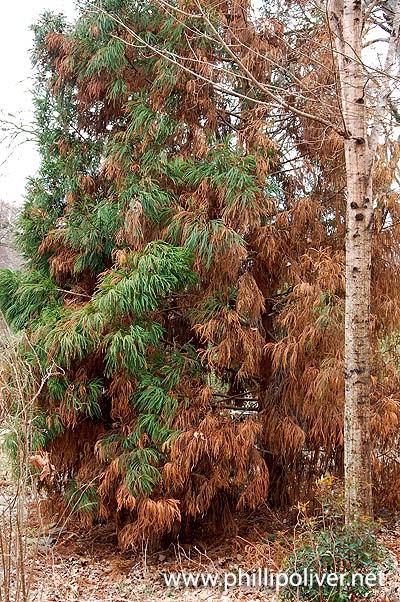Patchouli

The first time I ever heard of patchouli was back in the late 80s when Madonna released her "Like A Prayer" cd with a patchouli scented insert. I still didn't know back then that patchouli was an herb from the mint family (Pogostemom cablin).
I was surprised when I saw this herb at a nursery back in the spring and knew that I had to try growing it. Like I usually do, I bought the plant first and then researched it afterward. I googled it and read that it wasn't the easiest plant to grow and was finicky about growing conditions. I stuck it in the vegetable garden without much fanfare and figured that it would probably croak within the week. Like other plants that flourish with neglect, the patchouli proved me wrong when it started growing like wildfire and quickly developed into a nice clump about two feet high and wide. I read that it develops flower spikes of very tiny pink flowers but so far, I've only seen foliage.
Patchouli has a powerful fragrance - spicy and musky - and is used in perfumes and is said to combat depression, stimulate the nervous system and help balance hormones. It is also used externally for the effect it has on skin infections, eczema, acne, chapped skin, hemorrhoids, as well as varicose veins. It hails from the Orient and likes hot tropical conditions and prefers semi-shade. It is only hardy to zone 9 which means I will have to try and overwinter it if I want to keep it. I may try it as a houseplant through the winter.
I've really enjoyed this plant. I had a banana pepper plant growing next to it and as I picked peppers, my arms would brush up against it and the heavy patchouli aroma would be released into the air.

Comments
I had no idea that it could be grown here. I thought it was an exotic Asian plant used to mask the smell of other exotic Asian plants.
Cameron
You really should go for it, see if you can get it through winter and bring it into flower next year.
I learnt something new today as they say.
Thank you also for identifying the camellia on my blog!
gail
Frances
So patchouli is just one plant? Guess I assumed it was a blend!
Hope yours winters well!
Annie at the Transplantable Rose